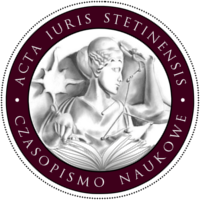






| Authors: |
Danuta
Kabat-Rudnicka

Uniwersytet Ekonomiczny w Krakowie |
| Editorial Board: |
Redaktor tomu:
Ewelina
Cała-Wacinkiewicz
Uniwersytet Szczeciński |
| Keywords: | post-Westphalian order diplomacy European Union European External Action Service |
| Whole issue publication date: | 2025-03 |
| Page range: | 16 (25-40) |
| Downloads ?: | 87 |
| 1. | Adler-Nissen R., Theorising the EU’s Diplomatic Service: Rational Player or Social Body?, w: D. Spence, J. Bátora (eds.), The European External Action Service: European Diplomacy Post-Westphalia, Basingstoke 2015, s. 17–41. |
| 2. | Austermann F., Representing the EU in China: European Bilateral Diplomacy in a Competitive Diplomatic Environment, w: D. Spence, J. Bátora (eds.), The European External Action Service: European Diplomacy Post-Westphalia, Basingstoke 2015, s. 288–305. |
| 3. | Bátora J., The ‘Mitrailleuse Effect’: The EEAS as an Interstitial Organization and the Dynamics of Innovation in Diplomacy, „Journal of Common Market Studies” 2013, vol. 51, no. 4, s. 598–613. |
| 4. | Bátora J., Spence D., Introduction: The EEAS as a Catalyst of Diplomatic Innovation, w: D. Spence, J. Bátora (eds.), The European External Action Service: European Diplomacy Post-Westphalia, Basingstoke 2015, s. 1–16. |
| 5. | Bickerton Ch.J., European Integration: From Nation-States to Member States, Oxford 2012. |
| 6. | Butler G., The European Union and Diplomatic Law: An Emerging Actor in Twenty-First Century Diplomacy, w: P. Behrens (eds.), Diplomatic law in a new millennium, Oxford 2017, s. 319–340. |
| 7. | Duquet S., EU Diplomatic Law, Oxford 2022. |
| 8. | Guimarães F.A., Speak up! Getting the EU a Voice at the UN General Assembly, w: J.A. Koops, G. Macaj (eds.), The European Union as a Diplomatic Actor, Houndmills–Basingstoke– |
| 9. | Hampshire 2015, s. 88–102. |
| 10. | Hocking B., Melissen J., Riordan S., Sharp P., Futures for diplomacy. Integrative Diplomacy in the 21st Century, Report, No. 1, October 2012, https://www.clingendael.org/sites/default/files/2016-02/20121030_research_melissen.pdf. |
| 11. | Kleistra Y., Willigen N. van, Evaluating the Impact of EU Diplomacy: Pitfalls and Challenges, w: J.A. Koops, G. Macaj (eds.), The European Union as a Diplomatic Actor, Houndmills–Basingstoke–Hampshire 2015, s. 52–68. |
| 12. | Linklater A., The Transformation of Political Community: Ethical Foundations of the Post-Westphalian Era, Cambridge 1998. |
| 13. | Manners I., Whitman R., Normative Power and the Future of EU Public Diplomacy, w: M.K. Davis Cross, J. Melissen (eds.), European public diplomacy: soft power at work, New York 2013, s. 183–203. |
| 14. | Onestini C., A Hybrid Service: Organising Efficient EU Foreign Policy, w: D. Spence, J. Bátora (eds.), The European External Action Service: European Diplomacy Post-Westphalia, Basingstoke 2015, s. 65–86. |
| 15. | Pietraś M., Marzęda K., Późnowestfalski ład międzynarodowy, Lublin 2008. |
| 16. | Raube K., Democratic Accountability and EU Governance: The EEAS and the Role of the European Parliament, w: D. Spence, J. Bátora (eds.), The European External Action Service: European Diplomacy Post-Westphalia, Basingstoke 2015, s. 140–156. |
| 17. | Spence D., From the Convention to Lisbon: External Competence and the Uneasy Transition for Geneva Delegations, w: D. Spence, J. Bátora (eds.), The European External Action Service: European Diplomacy Post-Westphalia, Basingstoke 2015, s. 219–240. |
| 18. | Spence D., The EEAS and Its Epistemic Communities: The Challenges of Diplomatic Hybridism, w: D. Spence, J. Bátora (eds.), The European External Action Service: European Diplomacy Post-Westphalia, Basingstoke 2015, s. 43–64. |
| 19. | Teschke B., Metamorphoses of European territoriality. A historical reconstruction, w: M. Burgess, H. Vollaard (eds.), State Territoriality and European Integration, London–New York 2006, s. 37–66. |
| 20. | The EU at the United Nations, September 2022, https://www.eeas.europa.eu/sites/default/files/documents/The%20EU%20at%20the%20United%20Nations.pdf. |
| 21. | Unia Europejska, Europejska Służba Działań Zewnętrznych, https://www.eeas.europa.eu/_en. |
| 22. | Weston A., Mérand F., The EEAS and Crisis Management: The Organisational Challenges of a Comprehensive Approach, w: D. Spence, J. Bátora (eds.), The European External Action Service: European Diplomacy Post-Westphalia, Basingstoke 2015, s. 323–340. |
| 23. | Wouters J., Duquet S., Unus inter plures? The EEAS, the Vienna Convention and International Diplomatic Practice, w: D. Spence, J. Bátora (eds.), The European External Action Service: European Diplomacy Post-Westphalia, Basingstoke 2015, s. 159–174. |
| 24. | Zieliński M., Charakter prawny i zadania Europejskiej Służby Działań Zewnętrznych, „Państwo i Prawo” 2014, nr 10, s. 85–97. |